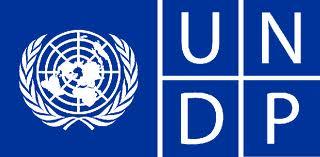Helen Clark: Nepal - Why we must work together to reduce the risk of disasters in vulnerable countries - UNDP - Opinion
Nepal’s Kathmandu valley has all of the factors that keep development experts up at night: a dense population, weak infrastructure, seismic activity, and hard to reach populations. In 2011, I went on an official tour of downtown Kathmandu called the “Earthquake Walk.” This tour, led by the government and other partners on disaster preparedness, was intended to demonstrate the vulnerabilities of residential and other buildings, including those of heritage and religious significance, to the next large earthquake that would strike the region one day.
What I learned on the tour was alarming: so many buildings would be unable to withstand an earthquake of any magnitude, let alone the massive one which struck on Saturday.
It has long been known that a major earthquake could happen at any time in this vulnerable region. That is why UNDP and other development partners have engaged with Nepal for many years on disaster risk reduction and response initiatives.
The Government of Nepal has been spearheading efforts to tighten legislation around new developments and retrofit buildings. The costs of strengthening existing infrastructure, however, are very high, and are often beyond the means of least developed countries like Nepal. Continued assistance from development partners is necessary, and is an investment which will repay itself countless times over in lives, livelihoods, and infrastructure saved in the event of a major quake.
Japan recently announced that it is allocating US$4 billion for disaster risk reduction in developing countries. There is also some momentum for the inclusion of disaster risk reduction targets in the Sustainable Development Goals to be agreed in September.
Let us all work with Nepal and other vulnerable countries towards the common goal of building a safer and more resilient future for all. Tragically it is too late for the victims of Saturday’s major earthquake, but it is never too late to resolve to reduce the risk of future disasters and act accordingly.
That will be especially important in the process of Nepal’s recovery from the catastrophe of recent days.
About the author
Helen Clark is the Administrator of the United Nations Development Programme and the former Prime Minister of New Zealand.
Aggiungi un commento
Accedi dalla colonna di destra per aggiungere un commento.


Commenti (0)